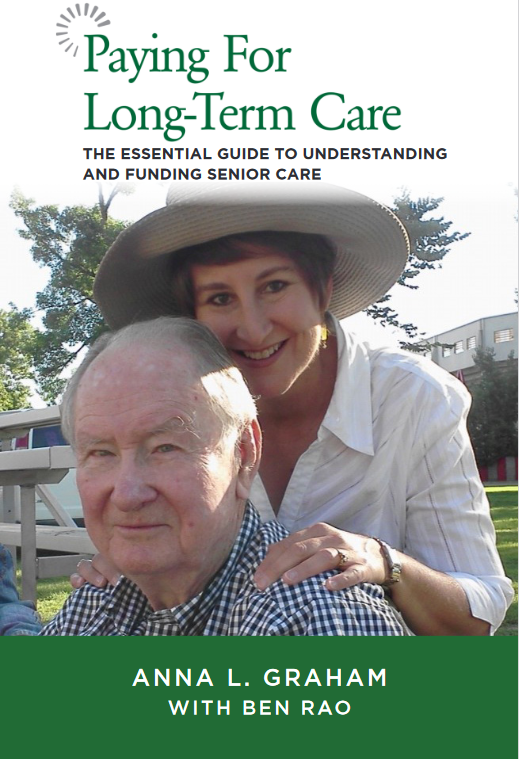
Have a question? We’ve got answers!
Frequently Asked Questions
There’s so much to learn about aging and senior care; don’t worry it is normal to have a lot of questions! Here’s a collection of answers to many of the common questions we receive. If you don’t find what you are looking for here, don’t hesitate to contact us. We’ll be happy to answer any questions you have or connect you with someone who can.
Q: My family member is no longer able to live independently in their lifetime home due to health/safety concerns. Can you help?
A: Yes! In many circumstances, seniors experience some type of emergency that leaves little time to prepare for the transition from their home. Often, these are lifetime homes that carry an emotional attachment and years of memoirs to sort through and clean out. That’s where we come in.
Anna is certified as a Senior Transition Specialist, which means she is trained to help seniors and their families determine the best course of action for their situation. Anna Helps Seniors provides education about community resources to help with the transition. Our goal is to decrease family stress so that the focus can be placed on finding the best possible care for your loved one(s). Sometimes this means a lifetime home needs to be sold to help finance senior care. In these situations, we work with our sister organization Anna Buys Houses to buy homes as is, on our clients’ terms and timeline, relieving the burden of expensive repairs and exhausting cleanouts. If the time isn’t right to sell, we connect you with others who can help, like reliable roofers, cleaning services, and eldercare attorneys.
Q: How much does long-term care cost?
A: Long-term care costs vary depending on the type of care and whether it is in a residential or nursing home setting. The cost also depends on where you live. Genworth offers a Cost of Care survey tool on its website to help calculate the cost of long-term care across the United States. Simply plug in your zip code to get an estimate.
Q: How do I pay for long-term care?
A: Many people wonder how they can afford long-term care when they get older. There are several ways to pay for long-term care. Most people will start with the use of personal savings or assets to help pay for care. If you have the option to take out a home equity loan, you may be able to pay for senior care with your home equity.
In most states, Medicaid will pay for some or all the cost of long-term care. However, you may have to meet certain income and asset requirements to qualify for coverage.
If you do not qualify for Medicaid, there are still several options available to you. One option is to consider purchasing a long-term care insurance policy, which can provide coverage for a specific amount of money per day or month. You can also use a variety of resources to help you pay for care, including veterans’ benefits, and other government and state programs.
DOWNLOAD our free book Paying for Long-Term Care: The Essential Guide to Understanding and Funding Senior Care for additional information about senior living options, strategies for transitioning into a senior living community, planning for the future, and more.
Q: Do I need to sell my home to pay for senior care?
A: There is no one-size-fits-all answer to this question, as the cost of senior care will vary depending on a person’s specific needs and circumstances. However, many people choose to sell their homes to finance long-term care costs. Here are some things to consider before deciding whether you need to sell your home to pay for senior care:
- How much money do you need?
- What are your other financial options?
- How long do you hope to keep your home?
- Do you want to continue living in your home?
- How much will long-term care cost?
The cost of senior care can be prohibitive, but there are many ways to pay for it. The first step is to plan out how much you need, then decide what your options are. You can use long-term care insurance, Medicare, Medicaid, or a combination of these. You can also use a variety of resources to help you pay for care, including veterans’ benefits and state programs. If you have the option to take out a home equity loan, you may be able to pay for senior care with your home equity.
Q: What am I going to do with my house?
A: If you are transitioning into a senior living community you may wonder what to do with your home. There are several options: you can rent it, sell it to a family member, sell it through a licensed Realtor, or use an as-is home buying service. The decision will depend on your individual circumstances and whether you need to sell the home to help pay for care.
Q: What I am going to do with all the “stuff” in my house?
A: If you are selling your home to transition into a senior living community or downsize it can be overwhelming to think about what you are going to do with all the stuff in your house. Emotions also come into play as you determine whether to keep it, sell it, throw it away, donate it, or pass it on to family or friends.
There are many companies that offer services to help you clean your home before you sell it. This can include deep cleaning the carpets and furniture, de-cluttering every room, and even cleaning the windows and gutters. Some companies even offer a move-out service to help you get your home ready to put on the market. The move-out service will take care of all the packing and cleaning for you. Prices for these services vary, so be sure to shop around to find the best deal.
If you have decided to sell your home through a senior transition specialist who is an as-is home buyer, there’s absolutely no need to make expensive repairs or undergo exhausting cleanouts. Simply take what you want and leave the rest behind. It’s that simple – no extra charge to clean or haul things away.
Q: I don’t live in Omaha. Do you have resources for my community?
A: The U.S. Administration on Aging offers a great public service for older adults and their families called Eldercare Locator, which allows you to search for services in your community by entering your zip code, or city and state.
Learn more about senior resources in our FREE Book – Paying For Long-Term Care: The Essential Guide to Understanding and Funding Senior Care

Download our FREE Book here. Or, you can always feel free to Contact us anytime if you have questions about senior resources.
Our book provides a comprehensive overview of:
- Senior service providers, resources, and senior living options
- Costs of long-term care, including understanding Medicare and Medicaid
- How to pay for care
- Strategies for successful transitions to senior living
- Healthy aging (e.g., companionship, safety, mental health, exercise, nutrition)
